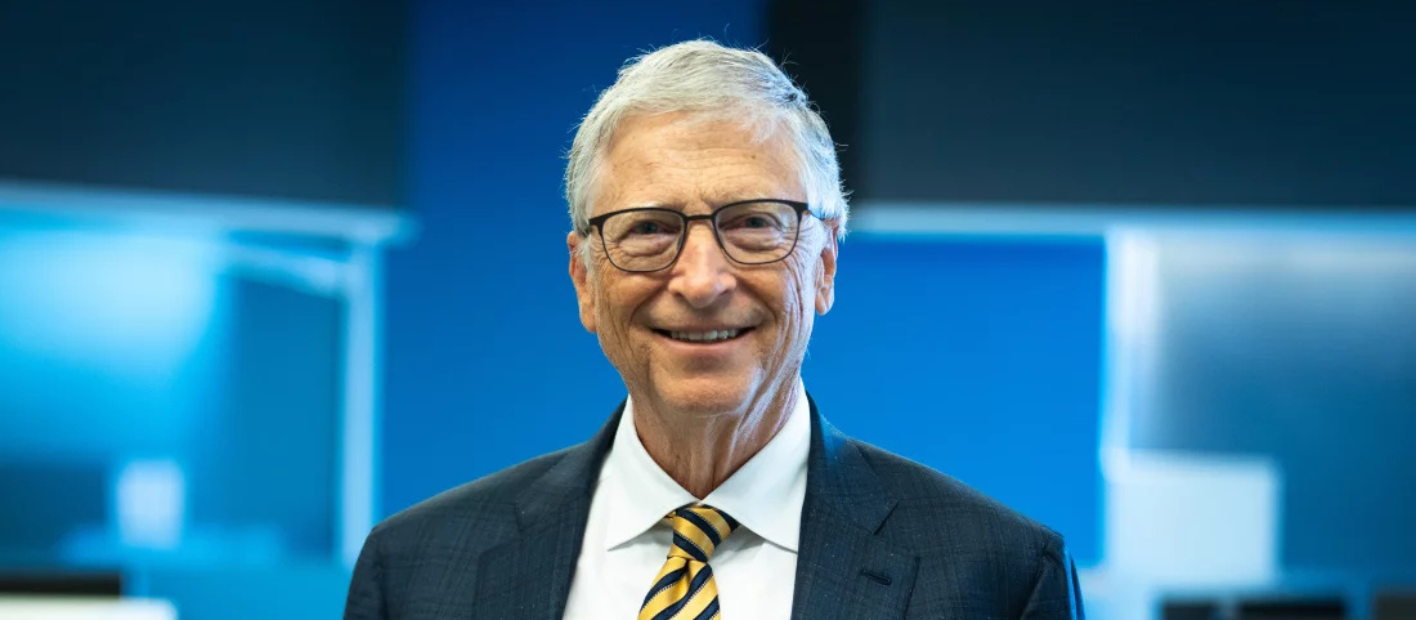Bill Gates: The Importance of Lifelong Learning and Giving Back
Bill Gate
Bill Gates: The Importance of Lifelong Learning and Giving Back
Bill Gates, a name synonymous with innovation and philanthropy, has become one of the most influential figures of the modern world. Known initially as the co-founder of Microsoft, Bill Gates built a technological empire, driving the world into a new era of computing. However, what makes him truly remarkable is not just his business acumen but his unending dedication to lifelong learning and giving back to society. These values, which Bill Gates holds dear, have shaped his legacy, inspiring millions to value knowledge and make a difference in the world.
Early Life and Education: The Foundation of Curiosity
Bill Gates was born on October 28, 1955, in Seattle, Washington. From an early age, he displayed an insatiable curiosity, especially when it came to technology and computers. His love for learning led him to experiment with coding, eventually allowing him to create his first program on a General Electric computer at the age of 13. Gates’ passion for technology only grew as he enrolled at Harvard, where he continued expanding his understanding of programming and software.
Although he famously dropped out to pursue Microsoft, his commitment to learning never waned. Gates understood that success in a fast-evolving field like technology required continuous education, a lesson that he would carry with him for the rest of his life. Through his early experiences, Bill Gates learned the power of knowledge and the importance of staying curious, a trait that has fueled his dedication to lifelong learning.
Microsoft: Building Success Through Knowledge and Innovation
The creation of Microsoft in 1975 was a turning point, not only for Bill Gates but for the world. He built Microsoft with a clear vision: to make computers accessible and useful for everyone. To achieve this, he relied on his vast knowledge and his team’s innovative approach to software development. Gates consistently pushed himself and his company to stay on the cutting edge of technology, always learning and adapting to new trends.
During his time at Microsoft, Bill Gates set a standard for continuous improvement, encouraging his employees to be lifelong learners and to remain curious. His focus on knowledge and adaptation allowed Microsoft to thrive and revolutionize personal computing. Gates’ success with Microsoft serves as a powerful example of how lifelong learning and an unyielding dedication to innovation can transform industries and change lives.
The Transition from Business to Philanthropy: A New Purpose for Bill Gates
In 2000, Bill Gates stepped down from his role as CEO of Microsoft to focus on the Bill & Melinda Gates Foundation, which he co-founded with his then-wife, Melinda. The decision marked a major shift in his life, signaling his transition from a technology pioneer to a philanthropist dedicated to solving some of the world’s most pressing problems. For Bill Gates, giving back became as crucial as his commitment to lifelong learning.
The foundation quickly became one of the largest private philanthropic organizations globally, focusing on health, education, and poverty alleviation. Gates brought the same curiosity and dedication to learning that defined his time at Microsoft to his philanthropic endeavors. He immersed himself in studying issues like global health, sanitation, and educational inequality, understanding that knowledge was essential to creating sustainable solutions. By applying his problem-solving skills and relentless pursuit of knowledge, Bill Gates has made a lasting impact on the lives of millions.
Lifelong Learning: A Core Value of Bill Gates’ Philosophy
For Bill Gates, lifelong learning is not just a principle but a way of life. He is a voracious reader, famously going through dozens of books every year, covering topics from science to history to business. Gates believes that reading and learning are essential for personal and professional growth, allowing individuals to adapt to new challenges and make informed decisions.
Gates also shares his learning experiences with the public, often reviewing books and discussing his key takeaways on platforms like his blog, GatesNotes. He views lifelong learning as a continuous process, one that enables people to gain new perspectives and develop innovative ideas. Gates’ dedication to learning serves as a reminder that knowledge is a powerful tool that can be used to drive progress, both personally and for society as a whole.
The Importance of Giving Back: Bill Gates’ Legacy of Philanthropy
Bill Gates’ commitment to giving back is as strong as his dedication to lifelong learning. Through the Bill & Melinda Gates Foundation, he has donated billions to various causes, from eradicating diseases like malaria and polio to funding education initiatives. Gates believes that giving back is a moral responsibility, a way for those with resources to help create a better world.
For Gates, philanthropy is not merely about donating money; it’s about understanding the root causes of problems and working toward sustainable solutions. He approaches philanthropy with the same rigor and curiosity that he applied to his work at Microsoft, using data, research, and collaboration to address complex global issues. By giving back, Bill Gates hopes to inspire others to contribute to society and use their skills and resources for the greater good.
Lessons from Bill Gates on Learning and Giving
- Stay Curious and Keep Learning
Bill Gates’ life demonstrates the importance of curiosity and a commitment to continuous learning. His pursuit of knowledge has been a driving force behind his success and impact, showing that learning is a lifelong journey. - Adapt to Change
Gates’ transition from a tech entrepreneur to a philanthropist highlights the value of adaptability. He used his knowledge and skills to tackle new challenges, proving that the ability to learn and evolve is essential for long-term success. - Use Your Knowledge for Good
Gates emphasizes that knowledge should be used to make a positive impact. By applying his expertise to address global issues, he has shown that learning is most powerful when it’s used to help others. - Recognize the Importance of Giving Back
Bill Gates believes that those who have been successful have a responsibility to give back. His philanthropic work is a testament to the idea that success is more fulfilling when it benefits others. - Seek Sustainable Solutions
Gates’ approach to philanthropy focuses on creating long-term solutions, not just quick fixes. His dedication to understanding complex problems and finding sustainable ways to address them reflects his belief in meaningful change.
Bill Gates’ Enduring Influence on Society
Bill Gates’ life is an inspiring example of how lifelong learning and giving back can lead to a meaningful, impactful life. His journey from a tech innovator to a global philanthropist illustrates the power of knowledge and compassion. Gates’ dedication to continuous learning has fueled his success, while his commitment to philanthropy has created a lasting legacy that will benefit future generations.
By sharing his wealth and knowledge, Bill Gates has set a standard for responsible, impactful leadership. His story encourages us to pursue knowledge, remain adaptable, and use our abilities to give back to the world. As Gates himself says, “Don’t compare yourself with anyone in this world…if you do so, you are insulting yourself.” This powerful message reminds us that true success comes from within, driven by a commitment to personal growth and a desire to make a difference.
Conclusion: The Legacy of Bill Gates
Bill Gates’ commitment to lifelong learning and philanthropy has left an indelible mark on the world. His journey shows that success is not just about personal achievements but about using one’s resources and knowledge to uplift others. Gates’ life serves as a beacon of inspiration, encouraging us to pursue our passions, stay curious, and give back whenever possible. Through his example, Bill Gates reminds us that learning and compassion are the keys to a fulfilling, impactful life.





